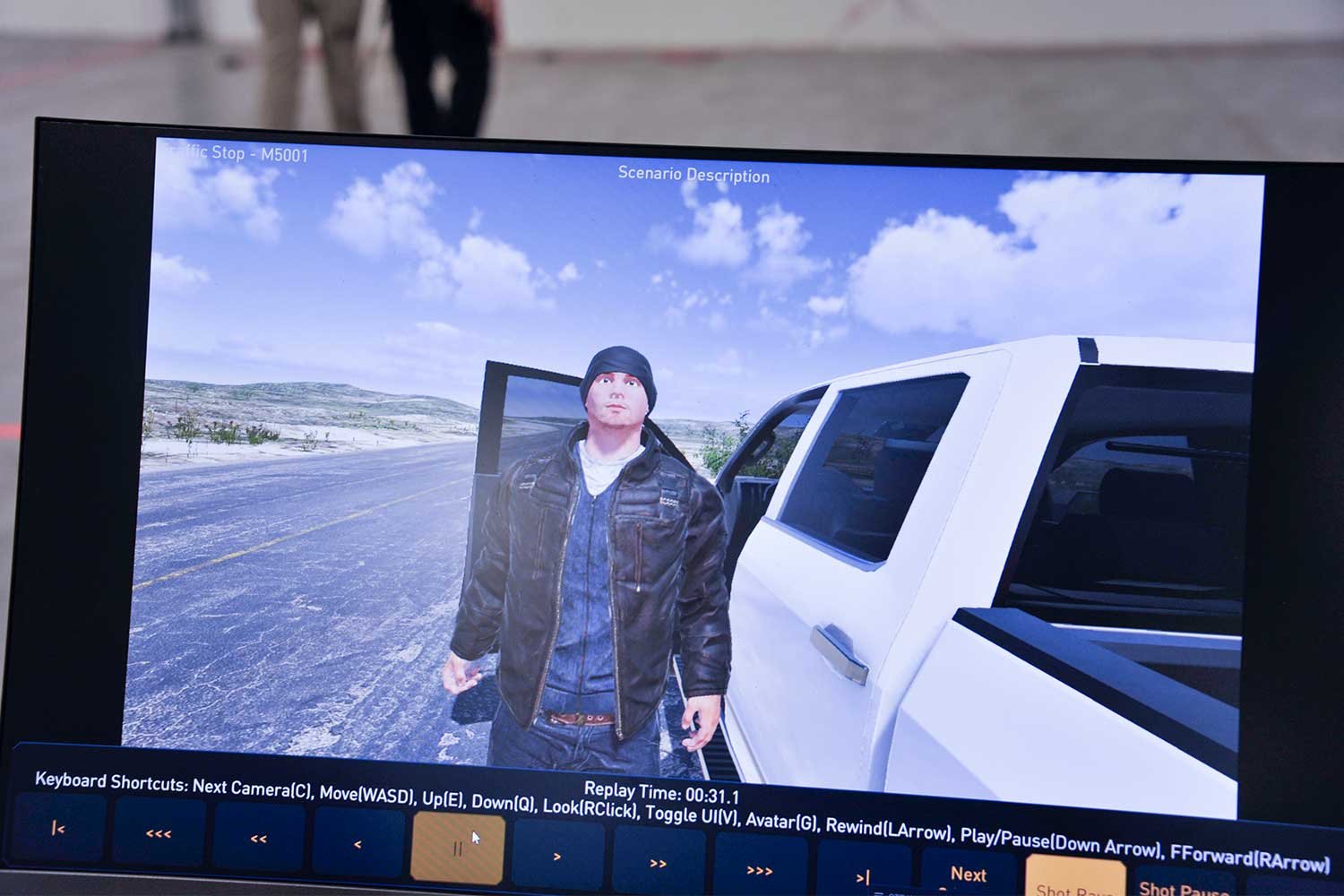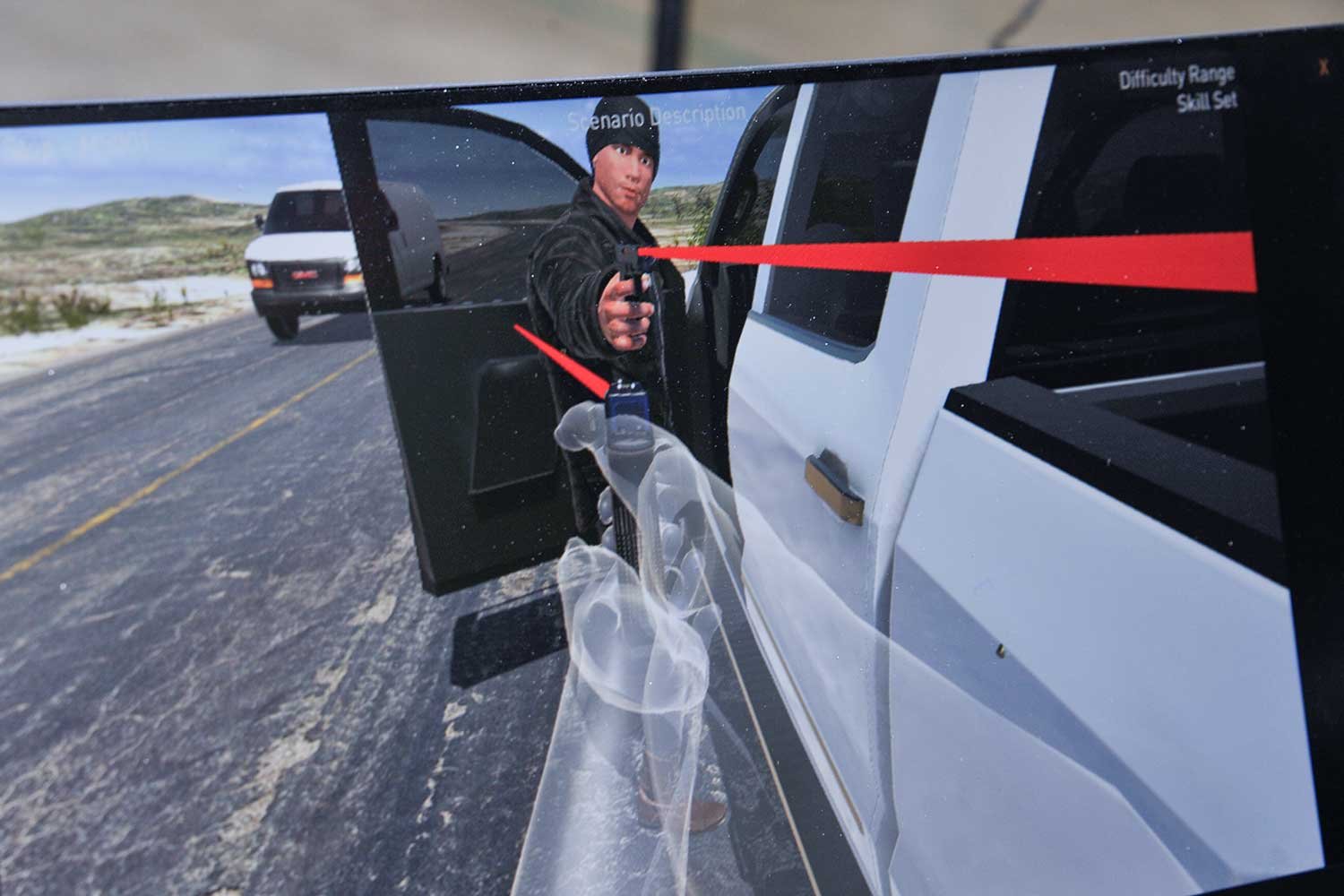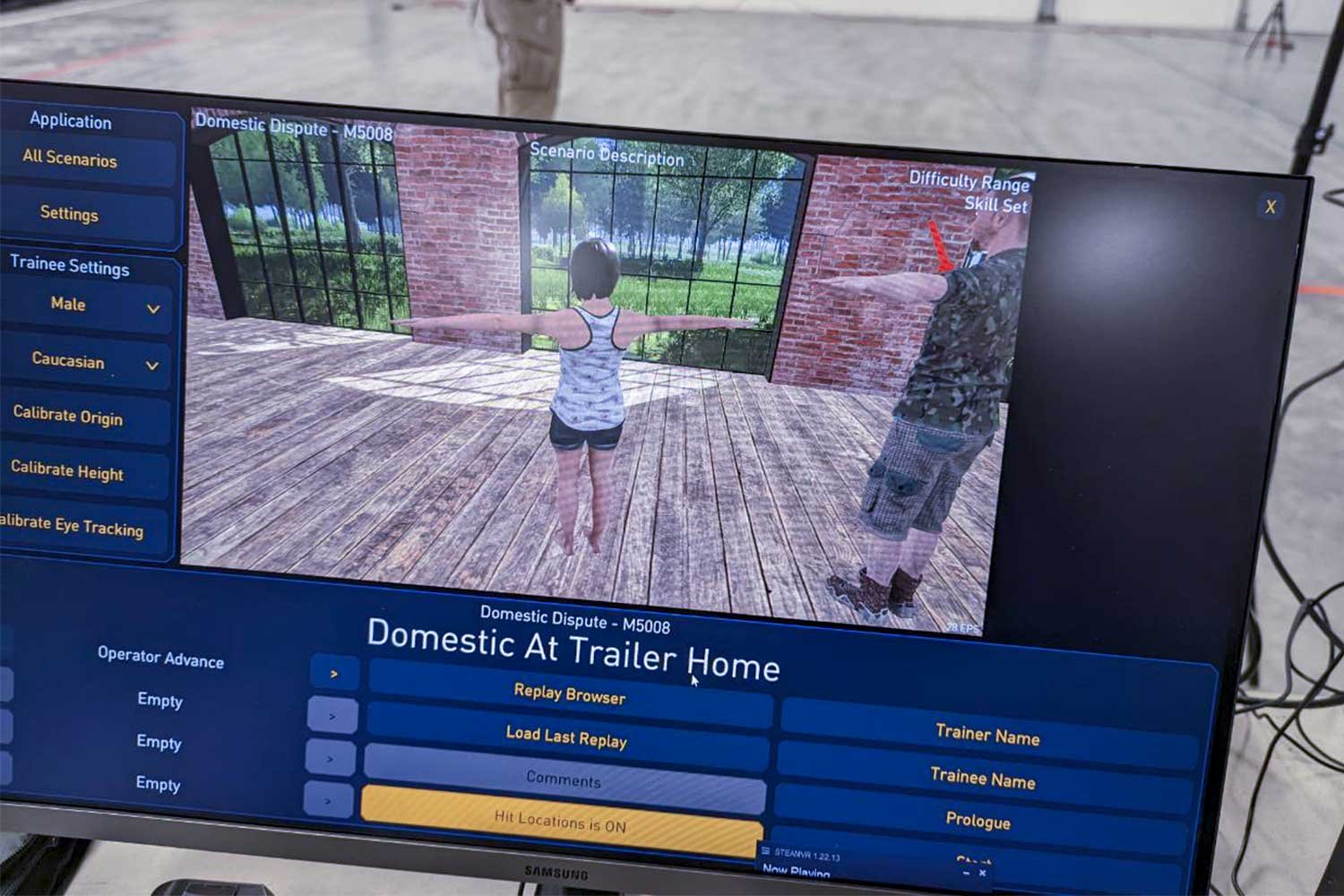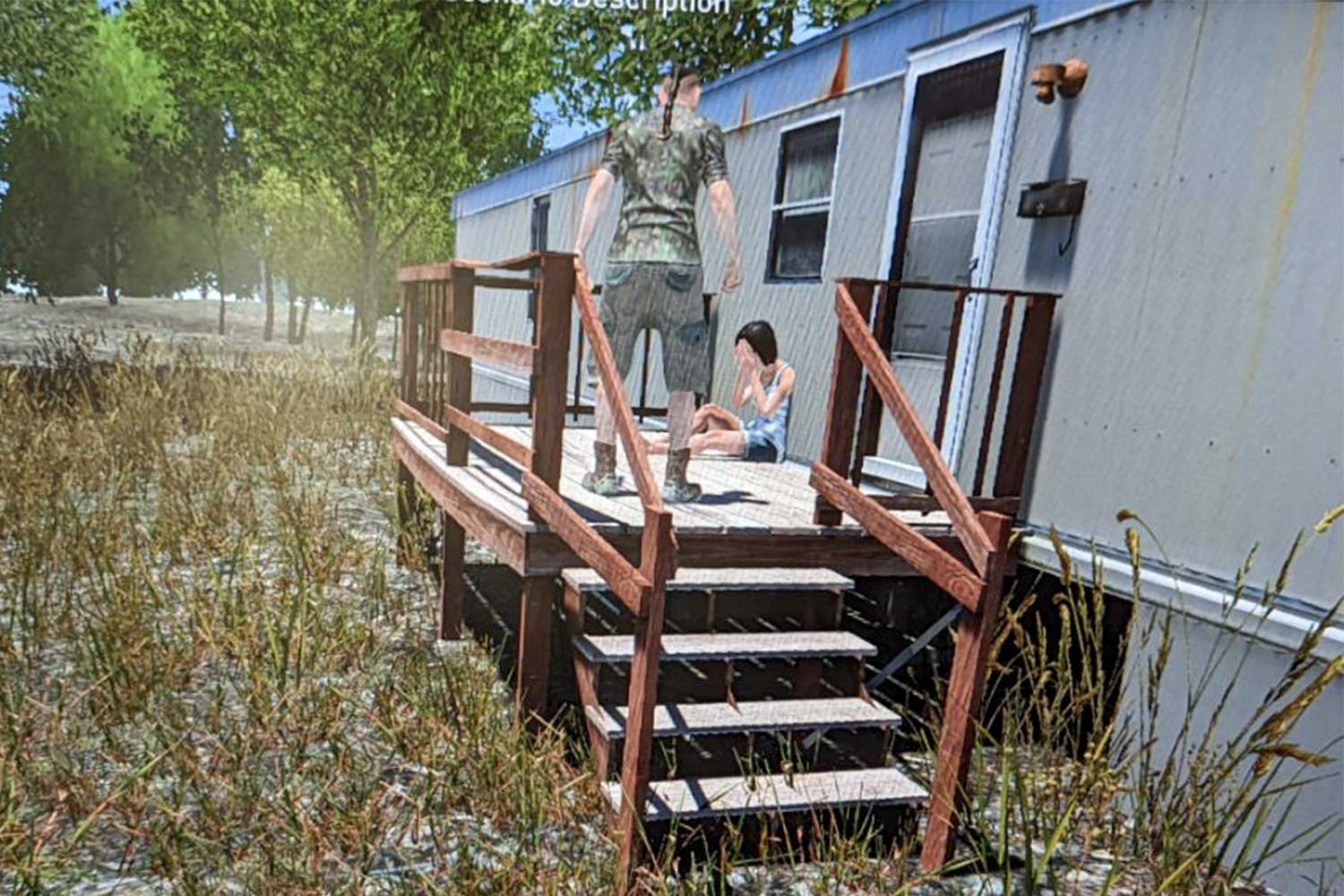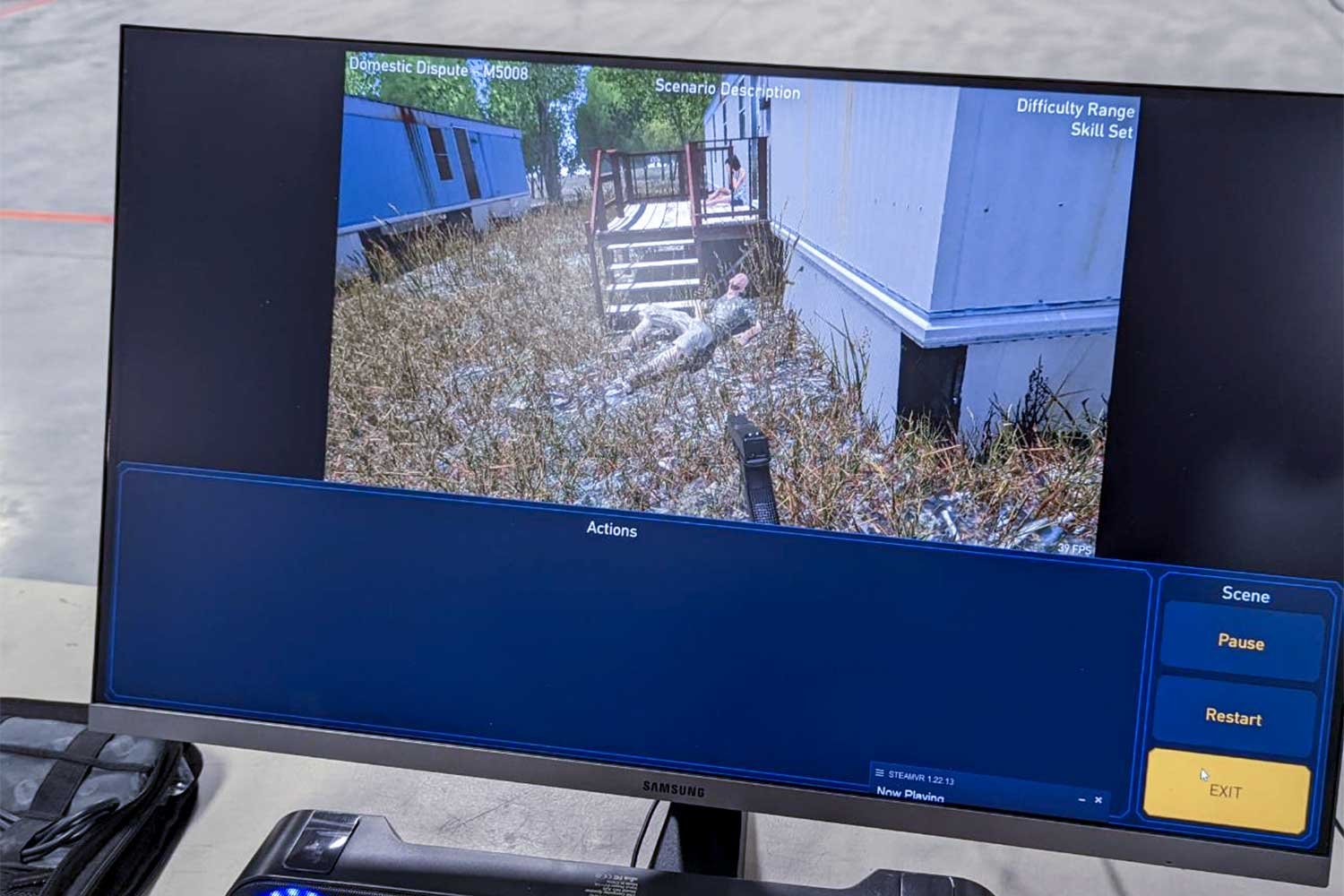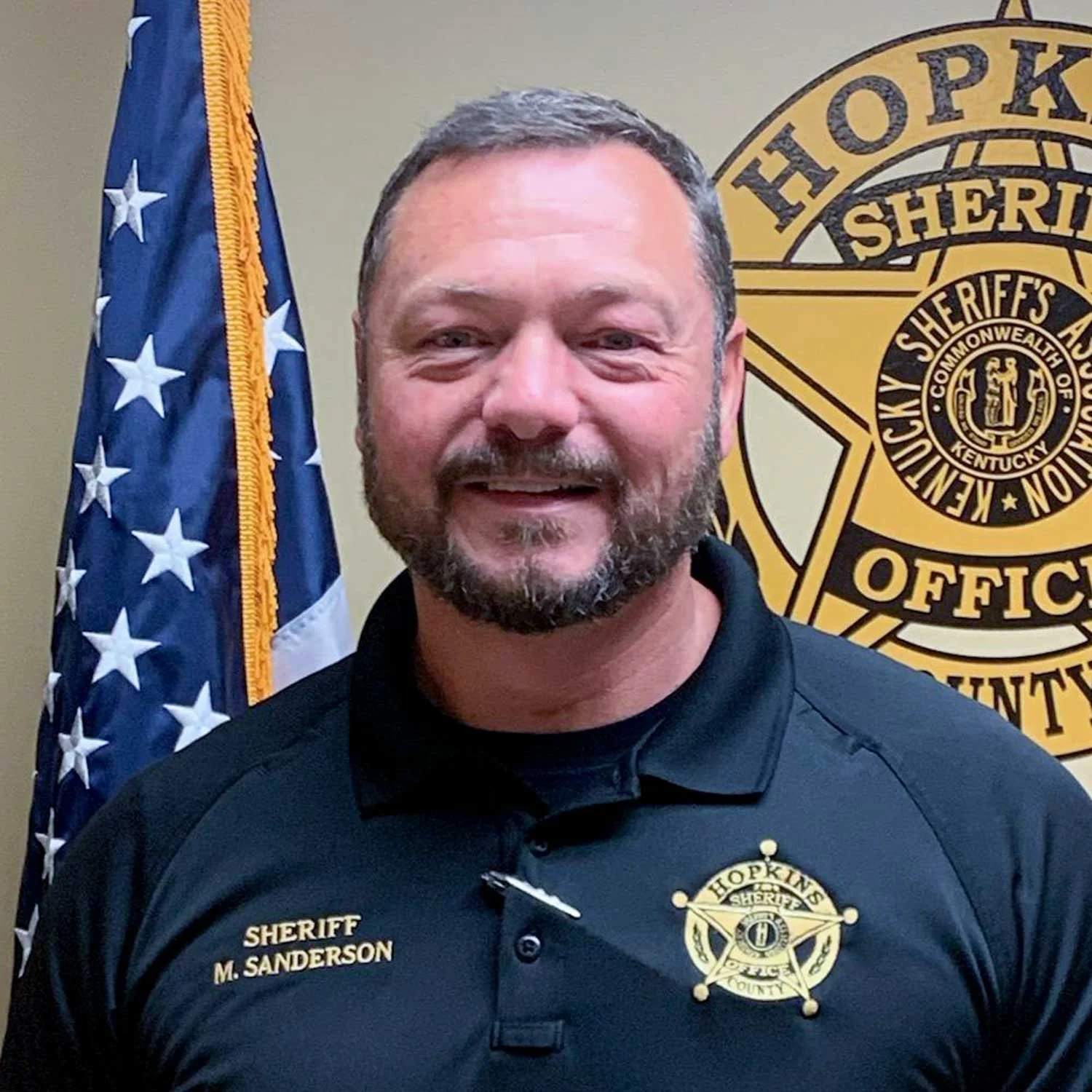Next Gen Training
PICTURED ABOVE
Hopkins County Major Charles Young goes through a virtual reality training exercise while Detective Joe Stratton acts as a spotter. (Photo by Michael Moore)
Law enforcement is a dangerous job, and officers face evolving risks and circumstances in the field. Police officers are better equipped to properly respond to situations when they are up to date on emerging trends in policing and best practices in the field. Therefore, continual training is an integral part of policing.
Virtual Reality
To meet the demands of the field and the need for on-the-job training, many agencies, such as the Hopkins County Sheriff’s Office (HCSO), are looking to virtual reality (VR) to keep law enforcement skills sharp.
VR is much more than officers playing video games, Hopkins County Deputy Jeff Welch said. It puts them in real-world scenarios. As the agency training officer, Welch can dictate responses by de-escalating or escalating the situation.
“It’s a game changer in the fact that, when you put the headset on, you’re fully immersed in the situation,” Welch said. “You must pay attention to everything in front of you, looking up and down. You can see all of it.”
Hopkins County uses the WRAP Reality VR training system. That system allows the agency to simulate various situations, ranging from shoplifting and suicidal subjects to active shooter and high-risk traffic stop conditions.
HCSO’s training is as close to real as it gets. During training scenarios such as a traffic-stop, officers can practically feel vehicles whizzing by on a busy roadway. While the actual danger does not exist, the mind is “tricked” into thinking it is there because of the realistic graphics.
Varied Scenarios
Welch said because of the scenario options, VR can be valuable in sharpening every tool a deputy needs while doing their job.
“It’s not every day that we’re out here shooting at people,” he explained. “But every day, we’re dealing with shoplifter calls, disabled vehicles on the side of the road and traffic stops. This allows our deputies to practice those calls without having to practice them in real life.”
The WRAP system also allows the HCSO to practice duty intervention.
“That is where the deputy wearing the headset shows up on the scene, and another officer is about to wreck their career by doing something they shouldn’t be doing,” Welch explained.
Hopkins County Sheriff Matt Sanderson said VR training requires very little staffing and setup time.
Hopkins County Sheriff Matt Sanderson (Submitted Photo)
“We can go through scenarios without having to do onsite preparation and making sure everything is set up, and the safety measures are in place,” he said. “With training like this, you can put deputies into more scenarios than you could in real life.”
Welch added that he can now get each deputy high-quality training and put them back on the road without service interruption nor significant overtime.
“I can bring deputies off the road and run them through a couple of scenarios in about an hour and not have to pay any overtime,” Welch said.
Welch said this type of training resonates with younger officers.
“We also have a lot of us older (retiring) folks, and the new folks expect this type of technology,” he said. “This is what they grew up using. They’re used to this kind of stuff.”
DOCJT Looking at VR
Several months ago, the Department of Criminal Justice Training began exploring the possibility of adding VR training to some of its skills sections.
“VR adds a layer of training, which can aid our instructors in the development of specific skills in our students in the following ways: conducting remedial skills and decision training when necessary, utilizing primer training to prepare students for live-fire training and non-lethal training weapons and ammunition scenarios,” DOCJT Tactics Section Supervisor Shannon West said. “VR can aid in constructing drills and scenarios, which incorporate visuomotor learning and critical decision making. The immersive nature of VR can significantly increase learning retention and transferability of skills and decision making to real-world environments and situations for officers.”
West added that DOCJT is contemplating the effective implementation of VR into its training curriculum.
“The cost of quality VR training equipment is rather substantial, and we are still kicking around ideas of how it could be effectively utilized in training recruits,” West explained. “I believe we will introduce it into training when we can determine the number of VR units needed to implement it into the Basic and in-service training curriculum effectively.”
A Proven Tool
West has studied VR impacts in other industries and is convinced that the benefits of law enforcement training are immeasurable.
“VR technology has been used for years in the aeronautical industry, and more recently, it has been introduced into the medical industry for training surgeons,” he pointed out. “In both industries, VR training technologies are recognized in terms of value in visuomotor learning and significantly better retention of knowledge and skills in clinical settings.”
West said police work is similar to aeronautics and medical industries in keyways.
“Police work is clinical in that police officers are required to assess situations, prescribe solutions, and implement tools based upon their training, knowledge and experience,” he explained. “A police officer’s knowledge and skills training must be transferrable to real-world situations officers encounter in the field. One of the biggest challenges for law enforcement is the sheer number of variables an officer must consider in any given situation (e.g., no two domestic violence calls are ever the same, no two traffic stops are the same, etc.).
It is nearly impossible to train officers to prepare for every encounter. VR, however, has the potential to significantly fill the gap in skills and decision-making training as the technology continues to get better and is accepted as a viable training tool for law enforcement.
(Photo by Michael Moore)

